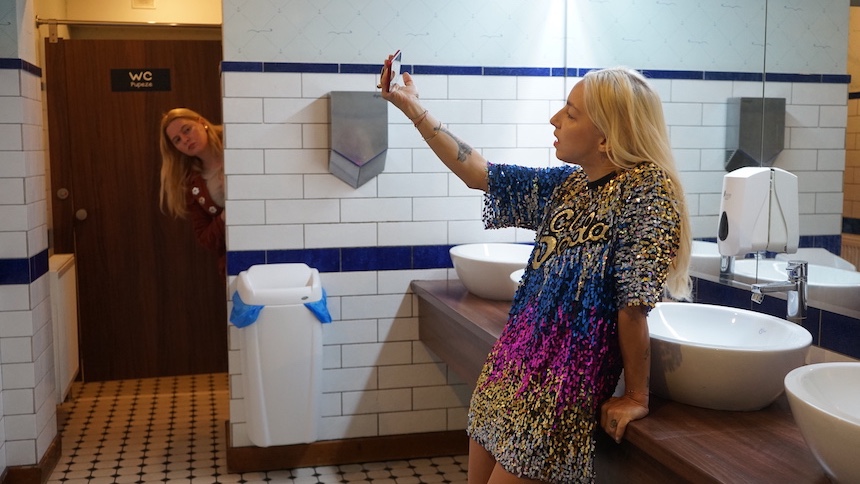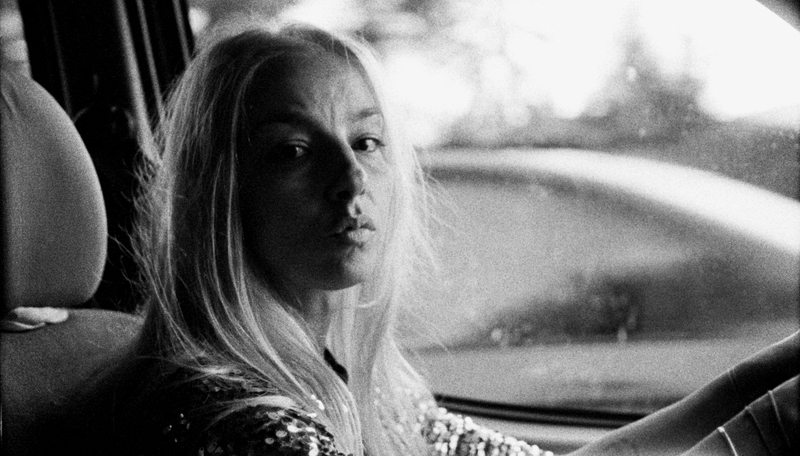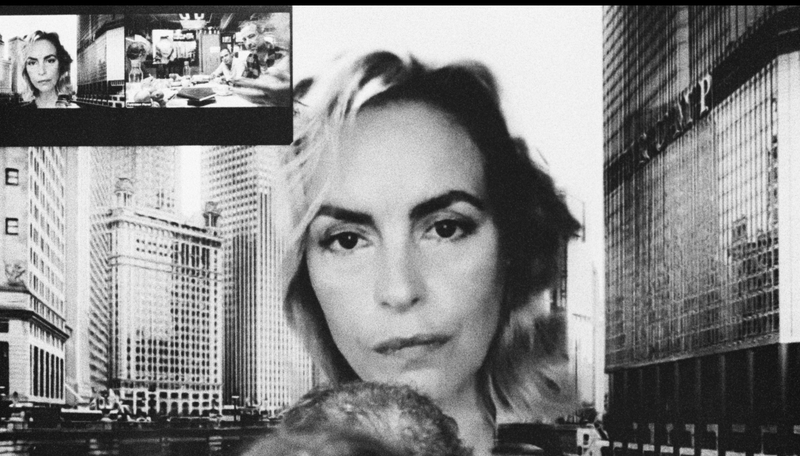Locarno 2023 Review: DO NOT EXPECT TOO MUCH FROM THE END OF THE WORLD, Late Capitalism Satire Meets Gonzo Cinema
Romanian autueur Radu Jude delivers a radical stream-of-consciousness para-essay starring Ilinca Manolache, Nina Hoss and Uwe Boll.

Award-winning Romanian auteur Radu Jude's Do Not Expect Too Much from the End of the World extends the thematic and stylistic exploration seen in his previous Berlinale-winning film Bad Luck Banging or Loony Porn, giving the impression of a continuation within a cycle along with I Do Not Care If We Go Down in History as Barbarians.
In his last two films, Jude centered on a female protagonist; this time, he features a spirited young PA navigating through Bucharest as she manages errands for a corporate work-safety video production.
Jude's most recent offering displays a more fragmented narrative structure, as the protagonist encounters diverse individuals while intertwining her personal affairs within a hectic schedule. Nevertheless, Do Not Expect Too Much from the End of the World exhibits a more cohesive narrative compared to its predecessor, as Jude refrains from indulging in the essayistic tangents that characterized Bad Luck Banging or Loony Porn. It builds on the signature formalism present in his previous works.
In Do Not Expect Too Much From the End of the World, the urban journey of protagonist Angela (portrayed by Ilinca Manolache in a stellar performance) draws a parallel to the 1981 film Angela Moves On, in which the eponymous character, also named Angela, is a taxi driver under the Ceausescu regime. By filming scenes in the same locations as Angela Moves On, Jude establishes a visual linkage between two distinct eras – totalitarianism and democracy, communism and capitalism – suggesting that not much has fundamentally changed.
In the earlier film, Angela navigated through a world where customers questioned her suitability for a traditionally male profession and offered unsolicited comments about her personal life, including motherhood. The modern-day Angela, a frenetic motor-mouth, grapples with the relentless demands of capitalism, characterized by overwork and sleep deprivation.
Despite this, she still manages to find moments to express her frustrations. Jude's approach here mirrors the aesthetics and poetics evident in his previous works, where he skillfully combines socio-political commentary with personal narratives.
Radu Jude's latest work takes audiences on a whirlwind journey through modern-day Bucharest, reminiscent of a Ulysses-like wandering. The film's high-tempo narrative, described as a stream-of-consciousness gonzo ride, sustains interest across its 2-hour and 43-minute runtime, interrupted only once and intentionally.
The film encompasses a rich tapestry of scenes, snippets, and commentaries across a variety of genres, forms, and styles, merging into a darkly comic road movie and a pointed socio-political satire that pulls no punches, much like its central character. As in his previous film Bad Luck Banging or Loony Porn, Jude continues to capture the zeitgeist with unerring precision. Despite the black-and-white cinematography of Marius Panduru, this latest work feels strikingly current, encapsulating contemporary social and political byproducts in near real-time.
Do Not Expect Too Much From the End of the World widens its appeal beyond the audience of his previous work, Bad Luck Banging or Loony Porn, despite his continued exploration of experimental cinema. This latest work might herald a shift towards alternmodern cinema, which showcases a post-genre cinematic fluidity integrating a variety of genres, forms and styles.
This evolving form of cinema, much like James Joyce's modernist masterpiece Ulysses, allows for multifaceted readings and interpretations, opening up a three-dimensional axis for viewers to engage with the film in a variety of ways, selecting from a wide array of interpretative choices.
Angela’s day begins at 5:50 a.m. with the blaring of an alarm clock and a string of curses. Throughout her day, as she runs her errands, Angela encounters a series of eccentric characters who offer a kaleidoscopic portrayal of life in Romania. While laden with local references and gags, the film also presents a broader commentary on the state of late capitalism and democracy, riddled with subversive elements.
Angela’s primary task of conducting at-home castings for a corporate work-safety video leads her to interact with individuals from a diverse array of working-class backgrounds. This juxtaposes sharply with her interactions with foreign corporate managers, who hold distorted views of the local workforce. As a social chameleon, Angela seamlessly navigates both the working-class homes and business offices with her ribald humor and aptitude for sharing obscure trivia.
One of the standout moments in the film comes when Jude employs a clever meta-cinematic twist: Angela encounters her doppelganger from the 1981 film Angela Moves On, which Jude's film is in dialogue with, meeting her now in her old age. In this scene, Do Not Expect Too Much From the End of the World not only leads a dialogue with Angela Moves On but assumes the role of its sequel, curiously merging fiction and reality.
Despite its obvious socio-political satire, Jude weaves in a plethora of Easter eggs, sight gags, and cameos. Jude himself occasionally appears in the background as a gig worker delivering food. One particularly surprising appearance is that of Uwe Boll, who is seen filming what appears to be a Starship Troopers knock-off.
Angela adopts a provocative alter ego, Bobita, characterized by right-wing and misogynistic beliefs reminiscent of the inflammatory Andrew Tate. Through a filter that transforms her into a caricature of masculinity, complete with a bald head, bushy eyebrows, and a goatee, she delivers a torrent of offensive remarks, including racist and misogynistic slurs, in sporadic episodes of on-location, real-time stand-up routines. Referring to herself as a "one-woman Charlie Hebdo," Bobita's rants often echo extreme right-wing sentiments on nationalist, pro-Russian, anti-American attitudes not only towards current international geopolitics.
In contrast to his earlier work, Radu Jude's Do Not Expect Too Much From the End of the World takes a more radical approach to both form and substance, yet paradoxically commands broader audience appeal—even with its lengthy 163-minute runtime. While the film focuses primarily on dissecting Romanian society, its thematic resonance extends to Western culture as well. Jude delivers a meticulously crafted, stream-of-consciousness narrative that encapsulates the socio-political zeitgeist of latter day capitalism tinged with faschist currents.
The film recently screened at the Locarno Film Festival.
Do Not Expect Too Much from the End of the World
Director(s)
- Radu Jude









